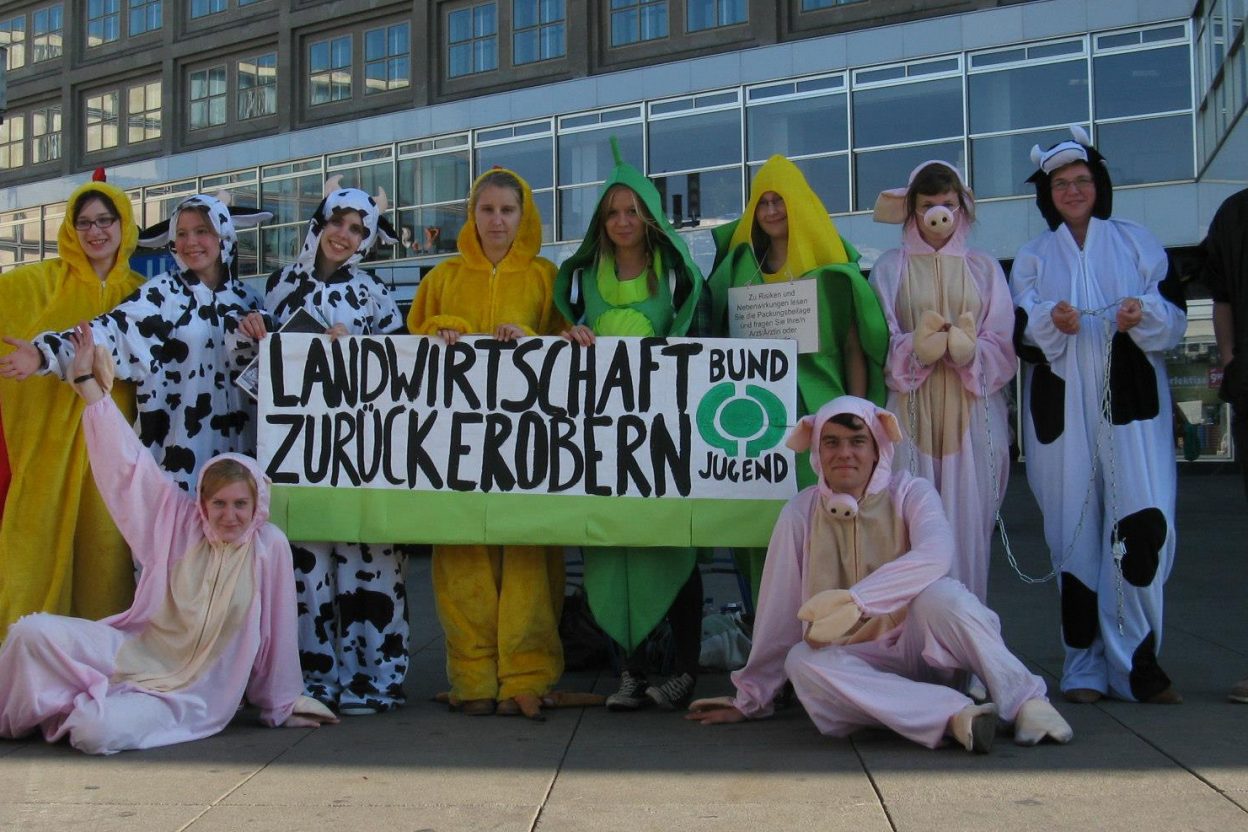We interviewed Kaya Thomas, who will be running a workshop on food sovereignty at our upcoming summer camp. Check out what she had to say below!
Kaya Thomas is from Germany’s Arbeitsgemeinschaft bäuerliche Landwirtschaft (AbL) which is an association of farmers resisting the political pressure towards ever fewer, more industrialized farms.
How would you define Food Sovereignty and why is it important to the wider environmental justice movement?
To quote the 2007 Declaration of Nyéléni, “Food sovereignty is the right of peoples to healthy and culturally appropriate food produced through ecologically sound and sustainable methods, and their right to define their own food and agriculture systems.”
It is important, among other reasons, because food is the primary source of energy for human beings. A lot of our struggles for justice have to do with the imbalanced way in which access to land, seeds and knowledge about food production are distributed. At the same time, our need to protect the environment has a lot to do with an extractive way of farming. Furthermore, food is culturally important to us, as preparing and eating food embodies sharing and nourishing each other. That can be a source of community and identity, empowering us beyond the basic freedom from hunger.
Could you share some of the most exciting project(s) that you’ve done in the past or are working on currently? Who was involved and what were the outcomes?
In 2013/14 a highly controversial law to regulate the marketing of seeds was discussed in the EU parliament, so I joined a group of young farmers and students of agriculture to drive a tractor from Hannover to a La Via Campesina demonstration in Brussels. On the way we visited various actors that would be affected by the law, including seed-saving farmers, a company producing GMO-seeds as well as ecological seeds (KWS), the German state agency responsible for allowing new seeds to the market. The seeds law was the first ever to be rejected by the European parliament. Our group’s contribution to that is minimal, but it was an intense learning journey for us and a stepping stone for further involvement with the topic.
What are some things you want to work on in the future?
Learn more about self-sufficiency in industrialized countries and structures for horizontal groups. Also I’m more and more interested in the concept of embodiment and how we can connect emotionally to problems of injustice and environmental damage, and derive energy to act constructively from that. Also, back to more practical farming.
Do you know what you’ll be focusing on at the workshop?
Some main topics will be understanding what Food Sovereignty means to us, examples of how it is being brought into practice and suggestions for connecting people for the purpose of self-empowerment and taking responsibility for the food chain
Are you excited about the summer camp? 😉
Hell, yes! I’m so happy about the opportunity to meet a new food sovereignty group and share ideas on some of my favourite topics.

